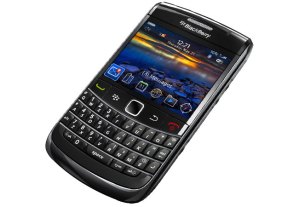
Following a ruling that offshore data storage and messaging services used by BlackBerry devices were illegal, the United Arab Emirates has begun outlining plans to block BlackBerry email, messaging, and Web browsing services in the country starting in October…and the ban will apply to visitors as well as citizens of the UAE. The ban would mean that BlackBerry-using travelers to Dubai—on of the Middle East’s busiest travel hubs—would lose services on arriving in the country.
The government cites BlackBerry services offshore data storage as a security threat, since the government cannot monitor the encrypted communications or physically seize servers on which data and messages are stores.
The plans have immediately raised questions about whether the UAE’s intentions have to do with security, or whether they are also part of a broader plan to control online content and restrict access to information the government believes to be morally or politically unacceptable. The Emerati government maintains the devices and services could be used by terrorists; others note that the same technology is also lawfully used by everyone from businesspeople and everyday citizens to human rights activists.
The United Arab Emirates is not the only country taking on BlackBerry users: within hours of the Emerati announcement, a telecommunications official in Saudi Arabia indicated the kingdom would do the same, although no official statement has yet been made. Other nations—including Bahrain and India—have expressed similar concerns about BlackBerry services.
The UAE announcement follows a debacle last year in which one of the UAE’s two mobile operators attempted to require BlackBerry users to install software described as a mandatory update; testing revealed it was spy software.


